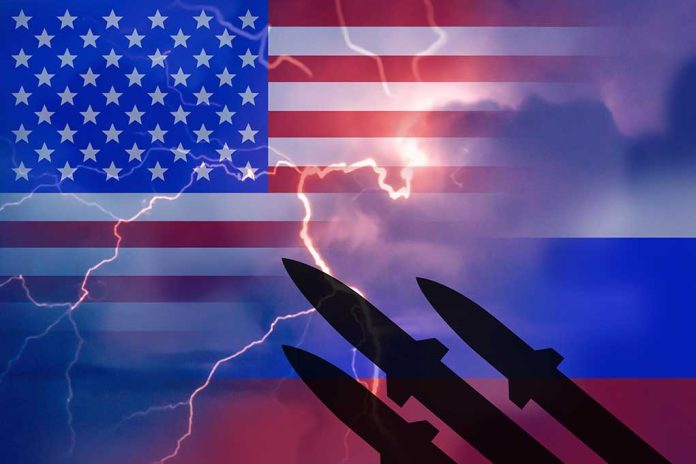
The United States has withdrawn from an international body investigating Russia’s actions in Ukraine, marking a significant shift in foreign policy.
Key Takeaways
- The U.S. is withdrawing from the International Center for the Prosecution of the Crime of Aggression (ICPA) against Ukraine, citing a policy realignment.
- The Biden administration had joined the ICPA in 2023, marking U.S. commitment to international accountability against Russian aggression.
- The Trump administration aligns with a reduced role in global efforts, impacting relations with traditional allies of Ukraine.
- Michael Schmid confirmed U.S. withdrawal from the ICPA, prompting questions about future accountability efforts.
U.S. Exits International Body Investigating Ukraine Conflict
The decision to exit the ICPA represents a pivot in the U.S.’s strategic approach to Russia’s invasion of Ukraine. The ICPA, established in The Hague with the support of the European Commission, was a pivotal entity tasked with holding Russia accountable under international law. This move diverges from the previous administration’s commitment under Biden to international collaboration against Russian hostilities.
This departure aligns with a broader reshaping of U.S. foreign policy under Trump, who has favored easing tensions with Moscow. Sources indicate a similarity to past strategies aimed at reducing formal accountability mechanisms while resuming some military assistance to Kyiv. Yet, the potential cessation of foreign aid could significantly affect Ukraine’s defense capabilities and the broader strategic balance in the region.
Implications of the Withdrawal
The decision has stirred considerable concern among international observers and allies, as the ICPA was instrumental in documenting Russian aggressions. With the United States stepping back, those efforts may face setbacks, complicating international efforts to hold Russian officials accountable. Michael Schmid, a representative of the prosecutorial effort, affirmed the U.S.’s strategic withdrawal.
This change not only affects prosecutorial momentum but may also strain diplomatic relations with European allies committed to supporting Ukraine, prompting potential shifts in alliance alignments. As Ukraine pursues justice for over 150,000 alleged war crimes committed by Russia, support from traditional leaderships like the U.S. is crucial.
Future of International Accountability
While the current administration stresses a focus on diplomatic engagements with Russia, the withdrawal might signal a different approach. Discussions are ongoing, with a call between the U.S. and Russian presidents anticipated to address the developments. Continuing conversations between the U.S. and Ukrainian leaderships are expected as strategic recalibrations unfold.
Whether this policy shift positions the United States for more collaborative relations with Moscow, while potentially risking its long-held support for Ukraine’s sovereignty and resistance, remains a subject of intense debate among policymakers and observers alike.


